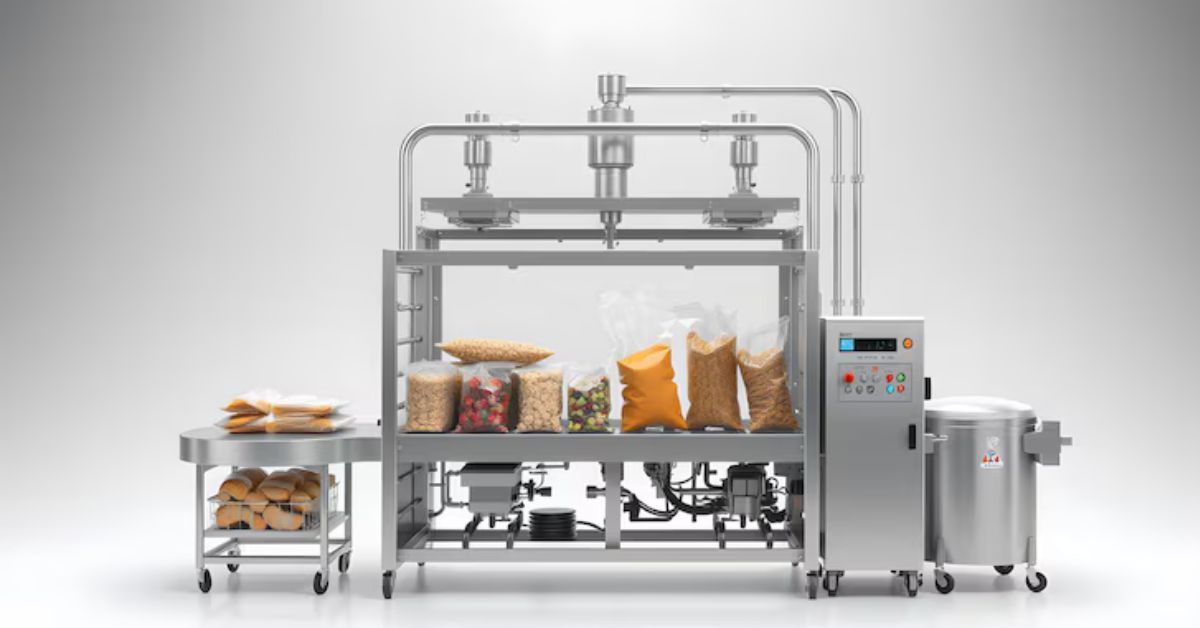Product Reviews
Custom Food Filling Machine: The Key to Boosting Your Production

A custom food filling machine can dramatically transform your production capabilities, offering precision, efficiency, and scalability that manual processes cannot match. Whether you’re a small artisanal producer looking to scale up or an established manufacturer seeking to optimize operations, the right filling equipment can be a game-changer for your business.
Who Needs a Custom Food Filling Machine?
Food manufacturers across various sectors rely on filling machines to maintain consistency and increase throughput. Do you need a custom food filling machine? Are you one of the following?
- Small batch producers who have outgrown manual filling processes often find themselves at a critical growth junction
- Mid-sized operations looking to reduce labor costs and improve quality control
- Large-scale manufacturers requiring specialized solutions for unique product formulations or packaging formats
The need becomes apparent when you’re facing:
- Inconsistent fill volumes affecting product quality
- Production bottlenecks are limiting business growth
- Labor-intensive processes are increasing costs
- Customer complaints about product consistency
Key Types of Food Filling Systems
Volumetric fillers measure precise amounts of product by volume, which is ideal for liquids with consistent viscosity. Gravimetric systems weigh the product as it’s dispensed, offering superior accuracy for variable density products. Piston fillers excel with viscous products like sauces, jams, and pastes. Flow meters provide continuous filling for high-speed production lines.
Your product characteristics will determine the optimal system. Think about viscosity, particulate size, temperature sensitivity, and flow properties.
Critical Features to Consider
Accuracy and precision should top your list of priorities. Even minor variations in fill volumes can significantly impact profitability over time. The best machines maintain tight tolerances consistently throughout production runs.
Materials matter tremendously in food production. Look for food-grade stainless steel construction with smooth, non-porous surfaces that prevent bacterial growth. All components that contact food should be easily removable for thorough cleaning.
Speed capabilities must align with your production goals. Evaluate cycles per minute alongside accuracy metrics – faster isn’t always better if it compromises precision or causes product degradation.
Flexibility for your product range deserves careful consideration. Can the machine handle different containers or product formulations? Tool-less changeovers can dramatically reduce downtime between production runs.
Integration with Existing Systems
Consider how a new filling machine will work with your current production line. Compatibility with existing conveyor systems, coding equipment, and packaging machinery prevents costly retrofitting. Modern filling systems offer various control interfaces, from simple PLC systems to sophisticated touchscreen controls with recipe management and production data logging.
The vertical integration potential matters too. Can the system grow with your business? Modular designs allow for adding capabilities like capping, labeling, or secondary packaging as needs evolve.
Return on Investment Calculations
The initial investment in custom filling equipment can seem substantial, but the long-term benefits typically justify the cost. Reduced labor requirements often provide the most immediate savings. Improved accuracy means fewer product giveaways and better margin protection. Enhanced quality control reduces waste and rework costs.
Most manufacturers report payback periods between 12 and 36 months, depending on production volume and the efficiency gained. Consider requesting production trials with your actual product to validate performance claims before purchasing.
Choosing the Right Partner
The relationship with your equipment supplier shouldn’t end at delivery. Comprehensive installation and training services ensure your team can operate the equipment effectively from day one. Responsive technical support and readily available spare parts minimize potential downtime.
Look for manufacturers with proven experience in your specific food category. Their application knowledge can prove invaluable in configuring the optimal solution for your unique requirements.
A custom food filling machine represents not just a purchase but a strategic investment in your production capabilities. The right system, thoughtfully selected and properly implemented, will deliver returns far beyond its initial cost through improved efficiency, consistency, and scalability.
Read More : Exploring Everything You Need to Know about Someboringsite.com
